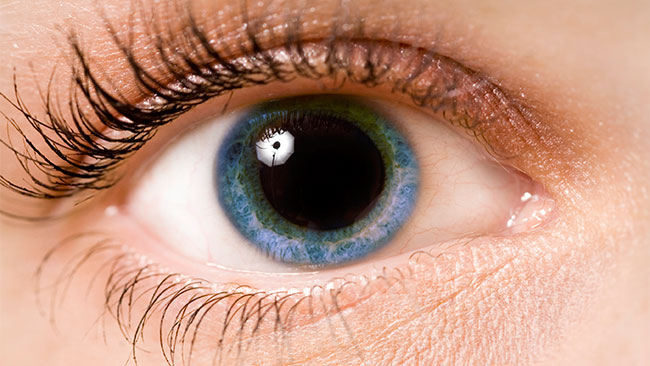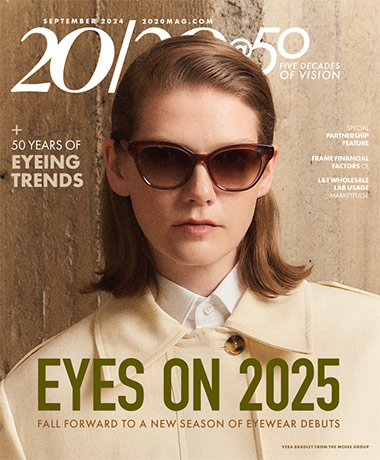
"You're not going to dilate my eyes, are you?"
I hear that at least once a day, every day. It's the fear response of the wary patient handing over his or her paperwork or making the way back to pretest, offered defensively or aggressively, a desperate plea for clemency from the optometric executioner. To listen to patients, you'd think that dilation was the end of the world; a test to out-NCT the NCT; three weeks ago, a twelve year old girl tried to kick me in the groin after her father told her, "Don't worry, it isn't going to hurt that much."
Dilation is, perhaps, the absolute worst thing in the history of ever. And I'm going to let all those lay readers who stumbled across this article on accident in on the dirty little secret: It serves no purpose, and we only do it to make ourselves feel powerful.
*ahem*
Okay, well, everyone reading this knows that's a hyperbolic statement, but, to hear a patient tell it, they probably think that's true; and it began to occur to me, dodging that twelve year old's foot, while her father stared dumbfounded, there must be a reason for that. Looking back on several patient interactions, the answer became clear to me as I remembered the second most uttered statement in our office:
"What exactly does dilation do, anyway?"
Bingo.
For an industry that prides itself on patient education and helping individuals make the best choices, one area where a large portion of the optometric world has been somewhat lacking is in the area of dilation education. Now, please accept that this is not a personal attack on anyone reading this; I have no doubt that many practices thoroughly educate their patients on the purpose for eye dilation. That said, the area my office is located in is relatively new; and while that area attracts a particular demographic, they've come here from all different regions of the country, bringing with them their geographically consistent fear and loathing of dilation. This speaks, to me, of a general trend of patient miseducation [and/or misunderstanding of the valuable purpose that dilation serves, and how those few hours of inconvenience can potentially spare an individual a lifetime of tragedy.
There are several things to do, of course. First and foremost, a popular means of casually addressing a potentially difficult topic is in a laminated sheet attached to paperwork. Be it a new or established patient, whenever someone has to fill out a form, make sure that it's on a clipboard attached to a bright-n-shiny piece of paper (orange and yellow are my favorite) with an attention-getting header along the lines of, "Why Dilate?" or "What is Dilation?" Many people won't read it—natch—but it will serve as a gateway into getting your patients thinking about dilation. (That authorization/consent to dilate page buried amidst your privacy practices and other signature sheets? No one's reading it. I know. I'm the guy who walks it back out to the patients to ask them to finish filling it out).
The next step would be someone in the office—preferably the doctor—directly addressing dilation with the patient at an appropriate point in the exam. Perhaps something along the lines of, "I need to discuss dilation with you." The need is the operative word here, as it underscores the importance and necessity of the procedure. The doctor could then gently assess the patient's understanding of what exactly a dilated fundus exam is, and give a basic yet thorough explanation if the patient demonstrates a lack of understanding. Tantamount to such an explanation is that the patient understands how the health of his or her eyes are involved, and how even in the absence of obvious symptoms, there might be an underlying problem (some coworkers of mine aptly compared the dilated fundus exam to the pap smear or prostate exam: an unpleasant but ultimately necessary component of a routine physical). This is a unique issue we face in the process of eye exams: Technically, poor eyesight is not usually the result of an unhealthy eye, simply a misshapen eye. Most individuals, though, would tend to assess poor eyesight as the product of a somehow "sick" eye, with glasses or contacts being the "cure." Much of this probably stems from the use of the phrase "eye exam" as a byword for refraction. By explaining the difference between a dilated fundus exam and a refraction, patients can better understand their own eye health, and make more informed decisions about the importance and necessity of dilation.

Preston Fassel was born in Houston, Texas and grew up between St. Charles, Missouri and Broken Arrow, Okla.
In 2009, Preston graduated Summa Cum Laude with a degree in Liberal Arts. In 2011, he graduated Cum Laude from Sam Houston State University with a Bachelor's of Science.
Preston currently works as an Optician in the Houston area. His interest in the history of eyewear goes back to his time in high school, when he developed an interest in all things vintage.
In addition to his writing for The 20/20 Opticians Handbook and 20/20 Magazine, Preston is a featured writer for Rue Morgue Magazine, where he reviews of horror and science-fiction DVDs. His fiction writing has been featured three times in Swirl magazine, the literary arts journal of Lone Star College and Montgomery County. He is the author of the definitive work on the life of British horror actress Vanessa Howard, Remembering Vanessa, which appeared in the Spring 2014 edition of Screem Magazine.












